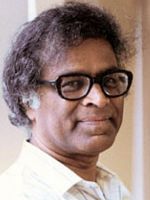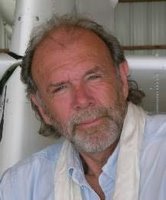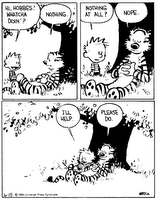#3: Anthony de Mello

If it all began with wonder (Socrates) and continued with dreams (Richad Bach) then it was time for awakening. That is the part we do not like about because dreams can be very sweet and comforting. Usually it is very painful to wake up. The pain comes from realizing that everything one believed in was just illusions. That one has lived all life in Matrix. After immediate realization life is never same again. That awakening is not some idea that just can disappear or change into some other idea. It is like blind person getting eyes. One must first die to reborn.
Though there is no common cause in awakening, it seems that people who are having some critical situation in their life may come up with it. De Mello put it like “it’s only when you’re sick of your sickness that you get out of it”. That was the case with myself. I was asking same questions in my mind every day. I felt like my heart was in pieces. All my beliefs had vanished. And then, accidentally as always, one person recommended me to read Anthony de Mello’s book Awareness saying that I should be careful if I read it, it may change my life. That was correct guess. After reading de Mello I became familiar with spirituality that is the essence of all religions. Or perhaps it would be more accurate to say that I started to understand spirituality which was there all along.
The book started like this:
A man found an eagle's egg and put it in a nest of a barnyard hen. The eaglet hatched with the brood of chicks and grew up with them. All his life the eagle did what the barnyard chicks did, thinking he was a barnyard chicken. He scratched the earth for worms and insects. He clucked and cackled. And he would thrash his wings and fly a few feet into the air. Years passed and the eagle grew very old. One day he saw a magnificent bird above him in the cloudless sky. It glided in graceful majesty among the powerful wind currents, with scarcely a beat of its strong golden wings.
The old eagle looked up in awe. "Who's that?" he asked. "That's the eagle, the king of the birds," said his neighbor.
That’s his description of Matrix. We are not what we think we are, we are not what others tell us that we are. We live in a cage that we have built ourselves. We fail to see the beauty of the world because we fail to see what we really are.
Anthony was a Jesuit priest who also worked as psychotherapist. He is usually seen as a teacher who was melting eastern and western wisdom together. Most people, he said, are asleep. They need to wake up, open up their eyes, see what is real, both inside and outside of themselves. He also said that the greatest human gift is to be aware, to be in touch with oneself, one's body, mind, feelings, thoughts, sensations. Of course the church saw him as rebel and a threat so current pope himself when he was still cardinal said that de Mello’s teachings are “incompatible with the Catholic faith and can cause grave harm.”. Despite this, his writings are very popular among Christians as well as others.
Here are two great quotes from him:
“There is only one cause of unhappiness: the false beliefs you have in your head, beliefs so widespread, so commonly held, that it never occurs to you to question them.”
“It is a great mystery that though the human heart longs for Truth, in which alone it finds liberation and delight, the first reaction of human beings to Truth is one of hostility and fear!”






